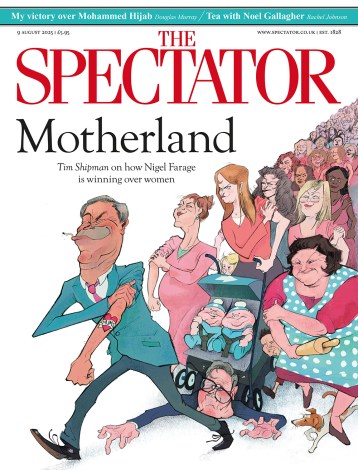Long life | 23 April 2015
There are already people camping outside St Mary’s Hospital, Paddington, to await the birth shortly of another royal baby, the second child of the Duke and Duchess of Cambridge. It is hardly a very exciting event. Babies are born all the time, and there are already quite enough descendants of the Queen to ensure the survival of the Windsor dynasty on the throne of the United Kingdom for a long time to come. Yet there are many people in this country for whom this commonplace event will be more thrilling than the forthcoming general election, even though it could presage the dismemberment of the country itself. The British monarchy continues



















